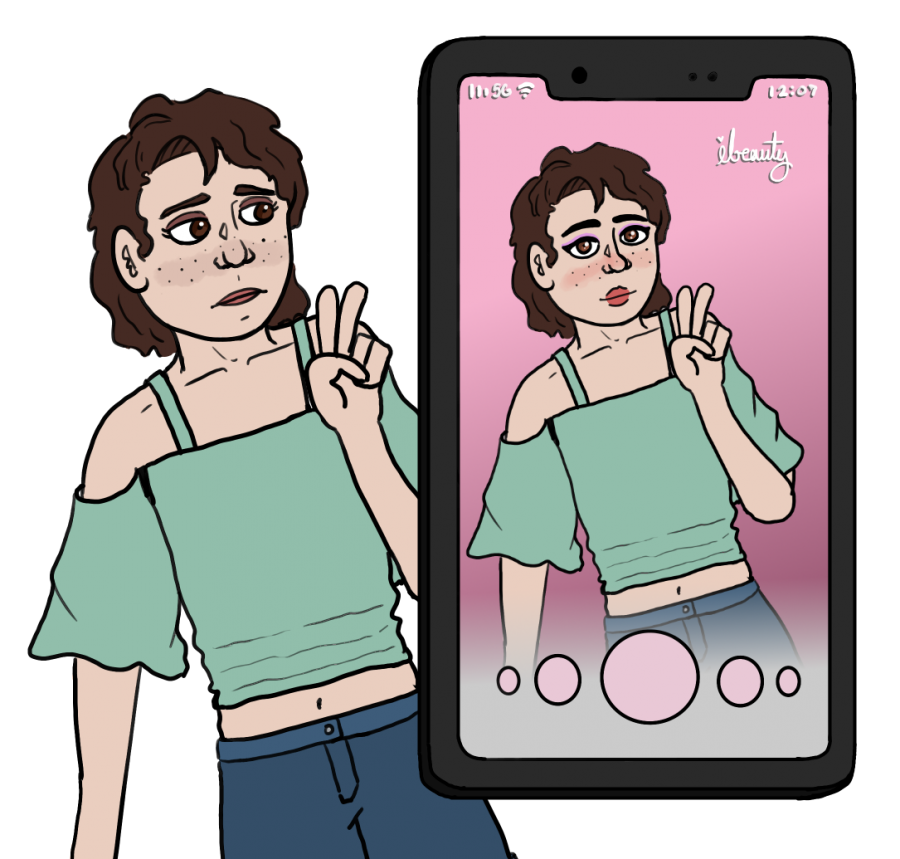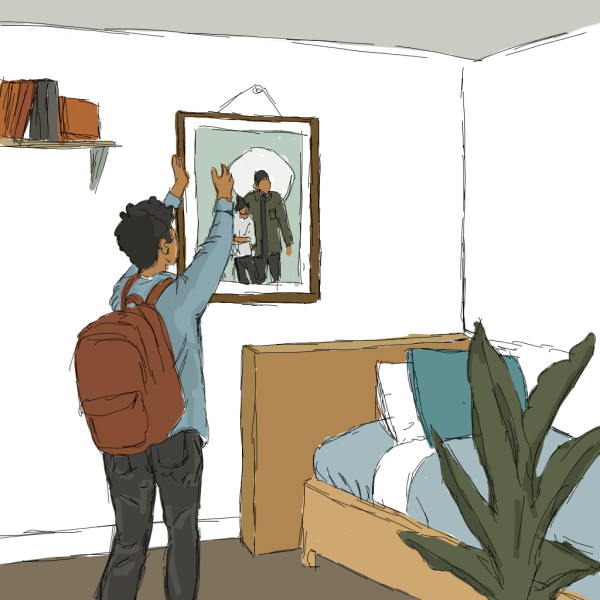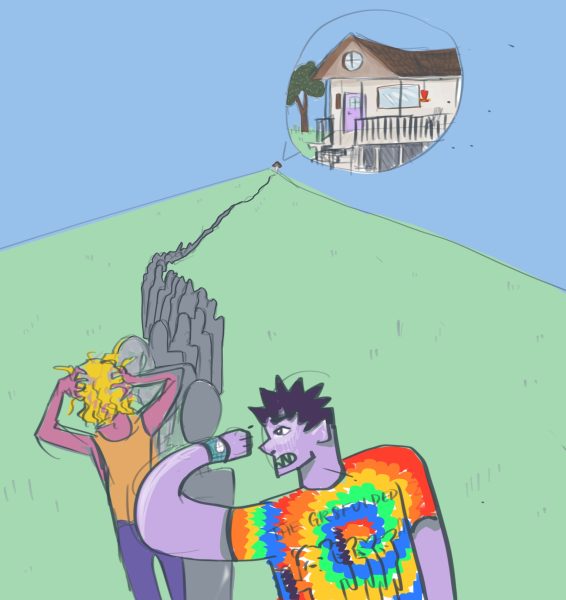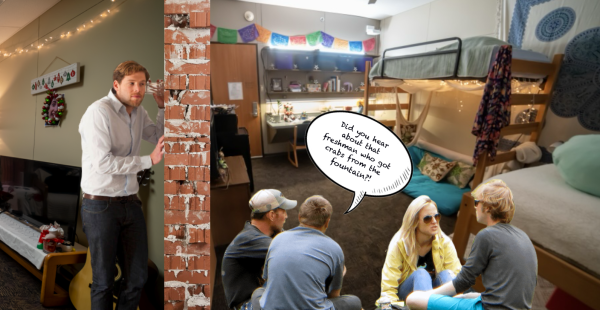Face filters, plastic surgery and social media
To be honest, I thought that the pandemic situation would have improved by now, but sadly I must admit that, like during quarantine, I still spend an embarrassing amount of time staring at myself in the mirror. I’ve picked myself apart, criticizing the size of my pores and the shape of my nose, among other minor imperfections that have pervaded my day-to-day life.
In the era of social distancing, former simple pleasures like traveling, going to a bar and attending concerts halted. Forced to transform our homes into hubs for work and play, life has hit peak virtual. We go on FaceTime dates. We attend Zoom weddings. We have telemedicine checkups with doctors, and, my gosh, how I hate to celebrate my little brother’s birthday each year on Zoom. Screen time is now all the time.
Though, to me, it feels like my insecurities have heightened out of the blue. I imagine it has a lot to do with the fact that stay-at-home orders have sent phone screen time reports through the roof. Spending more and more time on social media apps like Instagram and Snapchat has made me acutely aware of just how corrosive these platforms can be, particularly to the female psyche. That’s definitely not a hot take by any stretch, but I feel as if I’m watching female beauty standards quickly and unforgivably move to a dangerous place.
We’re all familiar with Instagram and Snapchat filters that give you fuller lips, clearer skin and bigger eyes. The truth is that many of us have — or know someone who has — turned to FaceTune, a photo-editing app, for a quick fix before posting a pic, and we’ve definitely all clocked other social media users for edit fails. These tools are so ubiquitous and normalized that no one bats a fake eyelash at them, in the same way that cosmetic procedures like cheek fillers and lip injections have become lunch break pastimes for the professionally beautiful. Social media, photo editing apps and plastic surgery have combined forces to create a distinct cyborgian look, complete with a dark tan, catlike eyes, a cutesy ski-slope nose and full, lush lips.
In 2020, many public figures went public about their plastic surgery journeys. Take popular YouTuber Tana Mongeau for instance. She posted a litany of videos documenting her cosmetic procedures: “ Get a Face Full of Filler with Me,” “I Got a Nose Job?” and “I Got Kylie Jenner butt shots… oops (needle warning).” At this point, it’s common knowledge that social media influencers lean into the plastic hard.
Honestly, I’m torn about how I feel about this. On one hand, I am a huge proponent of taking control of your body and doing what feels right to you no matter what anyone thinks, whether what’s “right to you” means monthly fillers, a strict diet or nothing at all. On the other hand, I have to ask: When it comes to getting plastic surgery, where do we draw the line between “taking control of your body” and mutilating your appearance because of changing societal norms that are deceptively and insidiously imposed upon women? And how can young girls even tell the difference between the two, if they even can at all?
I am writing this column because I am a woman struggling to navigate in this climate, and recently — left alone with my thoughts in quarantine — I have found it quite difficult and demoralizing at times. I cannot say that I have never contemplated nose jobs, totally convinced I want them in one moment only to find myself scared and thinking in the next, “How much of this do I really want, and how much of it is because social media is telling me that this is what ‘pretty’ or ‘hot’ look like?”
The internet has transformed from a place “to be” into a place “to become,” and it’s important to understand the distinction. As our face-to-face time dwindles and our face-to-scroll time ramps up, it’s more important than ever to keep our mental health in check. Don’t let social media make you look better but feel worse.
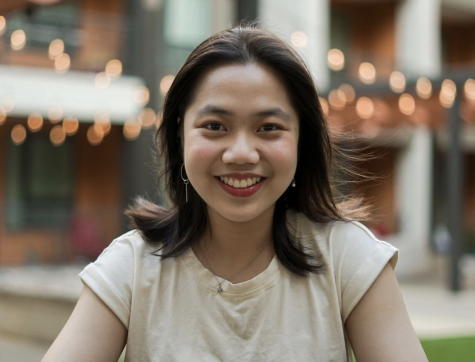
I am a native of Hanoi, Vietnam, and spent part of my childhood in Bangladesh and Cambodia. I am a senior majoring in Piano Performance and Communication,...
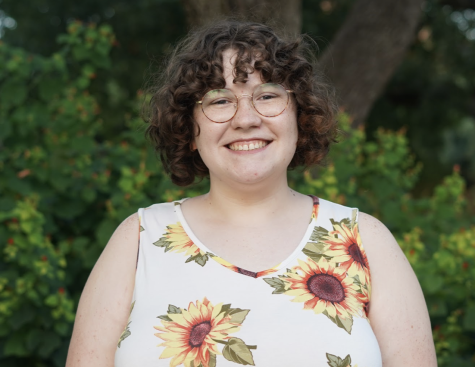
I'm a senior Computer Science major and a Classical Studies minor from Newton, North Carolina with a passion for art. I also work at the Center for Experiential...

